I'm testing WebRTC procedure step by step for my sake.
I wrote some testing site for server-less WebRTC.
http://webrtcdevelop.appspot.com/
In fact, STUN server by google is used, but no signalling server deployed.
Session Description Protocol (SDP) is exchanged manually by hand that is CopyPaste between browser windows.




So far, here is the result I've got with the code:
'use strict';
var peerCon;
var ch;
$(document)
.ready(function()
{
init();
$('#remotebtn2')
.attr("disabled", "");
$('#localbtn')
.click(function()
{
offerCreate();
$('#localbtn')
.attr("disabled", "");
$('#remotebtn')
.attr("disabled", "");
$('#remotebtn2')
.removeAttr("disabled");
});
$('#remotebtn')
.click(function()
{
answerCreate(
new RTCSessionDescription(JSON.parse($('#remote')
.val())));
$('#localbtn')
.attr("disabled", "");
$('#remotebtn')
.attr("disabled", "");
$('#remotebtn')
.attr("disabled", "");
});
$('#remotebtn2')
.click(function()
{
answerGet(
new RTCSessionDescription(JSON.parse($('#remote')
.val())));
$('#remotebtn2')
.attr("disabled", "");
});
$('#msgbtn')
.click(function()
{
msgSend($('#msg')
.val());
});
});
var init = function()
{
//offer------
peerCon =
new RTCPeerConnection(
{
"iceServers": [
{
"url": "stun:stun.l.google.com:19302"
}]
},
{
"optional": []
});
var localDescriptionOut = function()
{
console.log(JSON.stringify(peerCon.localDescription));
$('#local')
.text(JSON.stringify(peerCon.localDescription));
};
peerCon.onicecandidate = function(e)
{
console.log(e);
if (e.candidate === null)
{
console.log('candidate empty!');
localDescriptionOut();
}
};
ch = peerCon.createDataChannel(
'ch1',
{
reliable: true
});
ch.onopen = function()
{
dlog('ch.onopen');
};
ch.onmessage = function(e)
{
dlog(e.data);
};
ch.onclose = function(e)
{
dlog('closed');
};
ch.onerror = function(e)
{
dlog('error');
};
};
var msgSend = function(msg)
{
ch.send(msg);
}
var offerCreate = function()
{
peerCon
.createOffer(function(description)
{
peerCon
.setLocalDescription(description, function()
{
//wait for complete of peerCon.onicecandidate
}, error);
}, error);
};
var answerCreate = function(descreption)
{
peerCon
.setRemoteDescription(descreption, function()
{
peerCon
.createAnswer(
function(description)
{
peerCon
.setLocalDescription(description, function()
{
//wait for complete of peerCon.onicecandidate
}, error);
}, error);
}, error);
};
var answerGet = function(description)
{
peerCon.setRemoteDescription(description, function()
{ //
console.log(JSON.stringify(description));
dlog('local-remote-setDescriptions complete!');
}, error);
};
var error = function(e)
{
console.log(e);
};
var dlog = function(msg)
{
var content = $('#onmsg')
.html();
$('#onmsg')
.html(content + msg + '<br>');
}
Firefox(26.0):
RtpDataChannelsonopenevent is fired successfully, butsendfails.Chrome(31.0):
RtpDataChannelsonopenevent is fired successfully, andsendalso succeeded.
A SDP object by Chrome is as follows:
{"sdp":".................. cname:L5dftYw3P3clhLve
\r\
na=ssrc:2410443476 msid:ch1 ch1
\r\
na=ssrc:2410443476 mslabel:ch1
\r\
na=ssrc:2410443476 label:ch1
\r\n","type":"offer"}
where the ch1 information defined in the code;
ch = peerCon.createDataChannel(
'ch1',
{
reliable: false
});
is bundled properly.
However, a SDP object (local description) by Firefox does not contain DataChannel at all, and moreover, the SDP is much shorter than Chrome, and less information bundled.
What do I miss?
Probably, I guess the reason that send fails on DataChannel is due to this lack of information in the SDP object by firefox.
How could I fix this? I investigated sources of various working libraries, such as peerJS, easyRTC, simpleWebRTC, but cannot figure out the reason.
Any suggestion and recommendation to read is appreciated.